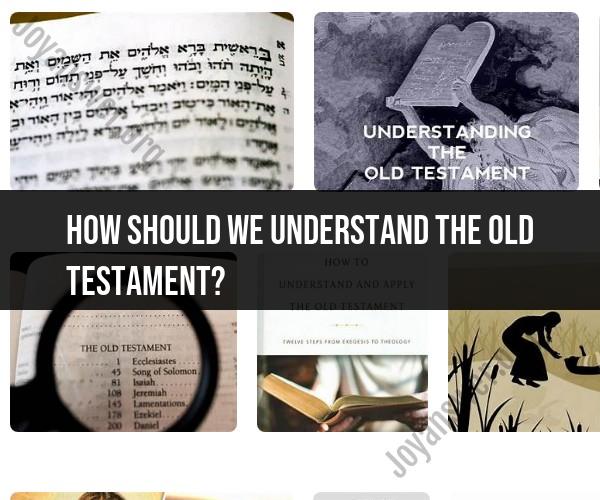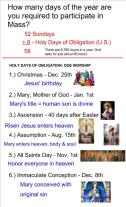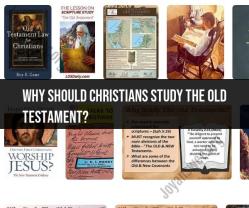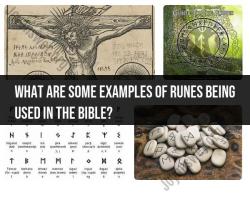How should we understand the Old Testament?
Understanding the Old Testament, which is a foundational text in both Judaism and Christianity, can be approached from various perspectives, including historical, religious, literary, and ethical viewpoints. Here are some key considerations for understanding the Old Testament:
Historical Context:
- The Old Testament contains a collection of ancient texts written over centuries by different authors in various historical and cultural contexts. To understand it, it's essential to study the historical background of each book and its cultural milieu. This includes learning about the historical events, societies, and customs of the time.
Religious Perspective:
- For those within the Jewish and Christian traditions, the Old Testament is considered sacred scripture. It contains religious teachings, moral guidance, and theological principles that inform the beliefs and practices of these faiths. Understanding the Old Testament often involves exploring its spiritual and theological messages.
Literary Analysis:
- The Old Testament is a rich collection of diverse literary genres, including history, poetry, prophecy, and law. Analyzing the literary style, structure, and themes of each book can provide deeper insights into the text's intended message and artistic qualities.
Interpretation and Allegory:
- Many passages in the Old Testament are open to interpretation and can be understood in multiple ways. Some readers view certain stories or prophecies as allegorical or symbolic, while others take them more literally. Different denominations and religious traditions may have varying interpretations of specific passages.
Ethical and Moral Lessons:
- The Old Testament contains numerous ethical and moral teachings that have influenced Judeo-Christian ethics. It addresses topics such as justice, compassion, righteousness, and the treatment of others. Studying these teachings can offer guidance for living a moral and ethical life.
Covenant and Relationship:
- The concept of a covenant, or a sacred agreement or relationship between God and humanity, is central to the Old Testament. Understanding the different covenants described in the text, such as the Abrahamic, Mosaic, and Davidic covenants, sheds light on the theological framework of the Old Testament.
Prophecy and Messianic Expectations:
- The Old Testament contains numerous prophecies, some of which are believed by Christians to point to the coming of the Messiah (Jesus Christ). Understanding these prophecies and their fulfillment in the New Testament is a significant aspect of Christian interpretation.
Comparative Religion and Cultural Influences:
- Exploring how the religious and cultural beliefs of neighboring societies influenced the Old Testament can provide a broader perspective on its development. This includes considering the relationship between Israelite religion and the religions of ancient Mesopotamia, Egypt, and Canaan.
Critical Scholarship:
- Some scholars engage in critical analysis of the Old Testament, examining issues such as authorship, textual criticism, and historical accuracy. Critical scholarship seeks to understand the text's origins and development in a scholarly and historical context.
Dialogue and Interpretation:
- The Old Testament continues to be a subject of dialogue and interpretation among scholars, theologians, and religious communities. Engaging in dialogue with others and considering various interpretations can lead to a deeper understanding of the text.
It's important to approach the Old Testament with an open and inquisitive mindset, recognizing that different individuals and religious traditions may interpret it differently. Whether one views the Old Testament as a sacred scripture, a historical document, or a work of literature, studying it can offer valuable insights into the history, culture, and beliefs of ancient Israel and the foundations of Judeo-Christian faith.
Interpreting the Old Testament: Approaches and Perspectives
There are many different approaches and perspectives to interpreting the Old Testament. Some of the most common approaches include:
- Historical interpretation: This approach focuses on the historical context of the Old Testament and seeks to understand the meaning of the text in its original setting.
- Literary interpretation: This approach focuses on the literary features of the Old Testament and seeks to understand the meaning of the text through its language, structure, and imagery.
- Theological interpretation: This approach focuses on the theological message of the Old Testament and seeks to understand the text in light of the Christian faith.
Each of these approaches has its own strengths and weaknesses. The historical approach can help us to understand the context in which the Old Testament was written, but it can be difficult to apply to our own lives today. The literary approach can help us to appreciate the beauty and complexity of the Old Testament, but it can be challenging to understand the meaning of the text without considering its historical and theological context. The theological approach can help us to see the Old Testament in light of the Christian faith, but it can be difficult to be objective when interpreting the text through a particular theological lens.
The best approach to interpreting the Old Testament is likely to combine elements of all three approaches. By considering the historical, literary, and theological context of the text, we can gain a more comprehensive understanding of its meaning.
Understanding the Old Testament: Historical, Literary, and Theological Frameworks
The Old Testament is a complex and multifaceted book. It contains a wide variety of genres, including history, poetry, prophecy, and law. In order to understand the Old Testament, it is important to consider the historical, literary, and theological frameworks of the text.
Historical framework: The Old Testament was written over a period of centuries, from approximately 1200 BC to 100 BC. The historical context of the Old Testament is important to consider because it helps us to understand the meaning of the text in its original setting. For example, the book of Exodus tells the story of the Israelites' escape from slavery in Egypt. In order to understand the meaning of this book, it is important to know something about the history of slavery in Egypt and the conditions that the Israelites faced.
Literary framework: The Old Testament is a work of literature. It contains a variety of literary genres, including history, poetry, prophecy, and law. Each genre has its own unique characteristics and conventions. In order to understand the Old Testament, it is important to be aware of the different literary genres and to interpret the text in accordance with the conventions of those genres. For example, the book of Psalms is a collection of poems. In order to understand the meaning of these poems, it is important to be aware of the different types of poetry in the Old Testament and to interpret the Psalms in accordance with the conventions of those types of poetry.
Theological framework: The Old Testament is a theological book. It contains the religious beliefs and practices of the ancient Israelites. In order to understand the Old Testament, it is important to be aware of the theological framework of the text. For example, the book of Deuteronomy is a book of law. In order to understand the meaning of this book, it is important to be aware of the theological beliefs that underlie the laws in Deuteronomy.
The Relevance of the Old Testament in Modern Faith and Scholarship
The Old Testament is relevant to modern faith and scholarship in a number of ways.
- The Old Testament contains the foundation of the Christian faith. The Old Testament tells the story of God's covenant with His people, and it contains the prophecies that were fulfilled in Jesus Christ.
- The Old Testament teaches us about the nature of God. The Old Testament reveals God as a loving, merciful, and just God.
- The Old Testament provides us with guidance for living a moral and ethical life. The Old Testament contains laws and wisdom teachings that can help us to live good lives.
- The Old Testament helps us to understand the world around us. The Old Testament tells the story of God's creation and His plan for the world.
The Old Testament is a valuable resource for both Christians and Jews. It contains a wealth of knowledge and wisdom that can help us to grow in our faith and to live better lives.
In addition to its religious significance, the Old Testament is also a valuable scholarly resource. It provides us with insight into the history, culture, and religion of the ancient Israelites. The Old Testament is also a rich source of literature and poetry.
The Old Testament is a complex and multifaceted book. It is relevant to modern faith and scholarship in a number of ways. By studying the Old Testament, we can learn more about God, ourselves, and the world around us.













